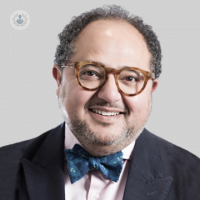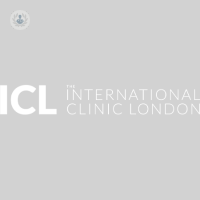Tics
Dr Rafik Refaat - Psychiatry
Created on: 03-28-2017
Updated on: 06-13-2023
Edited by: Sophie Kennedy
What is a tic?
A tic is an involuntary contraction of a muscle or a group of muscles, which can result in a movement or a sound. Sometimes tics are classified as non-voluntary rather than involuntary – this is because people can suppress the action (unlike a muscular twitch), but the urge to perform the tic becomes so strong that it is irresistible.

What are the different types of tic?
Motor (movement) tics can be simple like snapping fingers, blinking or shrugging, or they can be more complex and involve grimacing, bending over, banging your head or even obscene gestures or movements. More complex tics can seem slower and more purposeful, though they are involuntary just the same.
Vocal (phonic) tics can involve simple repeated sounds like barking, hissing, coughing or clearing your throat, or they can be more complex and involve repeating words or using obscene language. The causes of tics are largely unknown, though factors like stress, anxiety, sleep deprivation and the use of certain medications can worsen symptoms. Tics tend to be more frequent in periods of rest and relaxation, and disappear when sufferers are deep in concentration or asleep.
How is a tic experienced?
A tic is experienced as a build-up or an urge that is satisfied (like a sneeze or an itch) by performing the tic. The most severe form of tic known is Tourettes syndrome, where multiple motor tics and vocal tics can also be accompanied by coprolalia (spontaneous utterance of inappropriate or obscene language).
Are there any preventative treatments?
Prevention can include more natural methods like self-help, which would be removing factors that exaggerate the tics from your life (stress, eating and sleeping well etc) or behavioural management where a patient are taught how to identify the onset and manage the urge to perform the tic. In this category, there is habit reversal therapy (HRT) or exposure with response therapy (ERP). There are also medications that regulate different hormones and receptors in the brain responsible for tics, or Botox injections that can manage vocal tics. A type of surgery called deep brain stimulation can be undertaken, which involves electrodes being implanted into the brain to help regulate certain areas related to this movement disorder.





